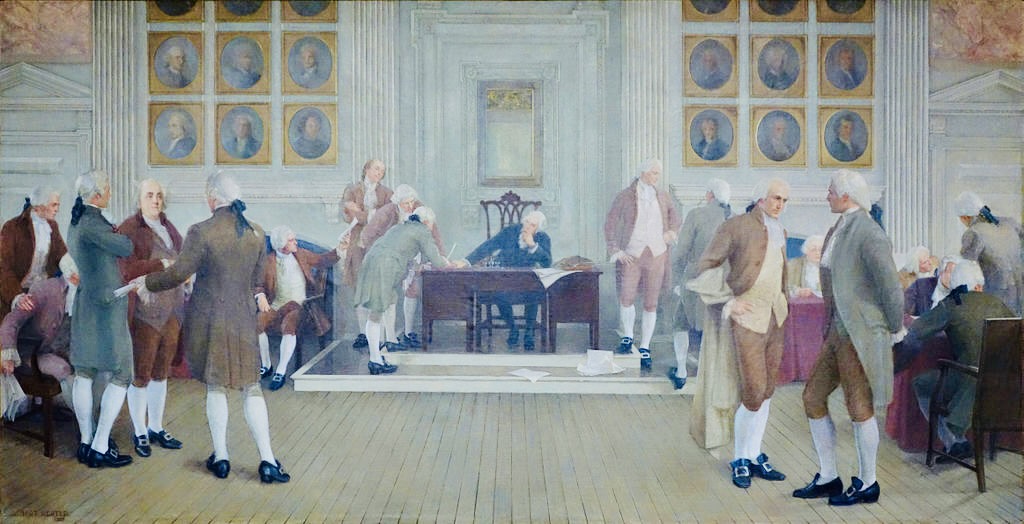Introduction
In response to the Fugitive Slave Act of 1850, which strengthened requirements that state and local officials assist in returning escaped enslaved persons, a number of state legislatures enacted or augmented personal liberty laws that barred officials from helping enforce the act and took various other steps to frustrate its implementation. The Wisconsin Legislature passed a personal liberty law in 1857. Two years later, in 1859, the Wisconsin Legislature passed another law, this time in response to the U.S. Supreme Court’s ruling in Ableman v. Booth, 62 U.S. 506 (1859) sustaining the Fugitive Slave Act and rejecting efforts by the Wisconsin Supreme Court to nullify the law.
The U.S. Supreme Court’s decision in Ableman v. Booth summarized the complicated proceedings in the case. Sherman Booth was charged with helping to release an escaped enslaved person, Joshua Glover. A judge on the Wisconsin Supreme Court, in an action sustained by the entire state supreme court, discharged Booth from federal custody and ruled that the Fugitive Slave Act was unconstitutional. Booth was subsequently tried and found guilty in U.S. District Court. The Wisconsin Supreme Court once again intervened in the case and issued a ruling securing Booth’s release. In his opinion for the Court in Ableman v. Booth, issued on March 7, 1859, Chief Justice Roger Taney reversed the Wisconsin Supreme Court’s ruling; he affirmed the supremacy of federal courts over state courts and rejected the authority of state courts to countermand federal court rulings.
Drawing on the “compact” theory of the Constitution and quoting from the 1798 Resolutions of the Virginia and Kentucky state governments, the Wisconsin Legislature responded by enacting a law on March 19, 1859, which declared the Supreme Court’s decision “without authority, void, and of no force.” The legislature argued that in the U.S. federal system, “each party has an equal right to judge for itself, as well of infractions as of the mode and measure of redress.” The legislature went on to declare that the sovereign states had a right to defy federal actions they judged to be unauthorized.
—John Dinan
Source: Joint Resolution Relative to the Decision of the United States Supreme Court, Reversing Decision of the Supreme Court of Wisconsin, General Laws of Wisconsin, 1859, 247–248, https://docs.legis.wisconsin.gov/document/acts/1859/JR4.pdf.
Whereas, The Supreme Court of the United States has assumed appellate jurisdiction1 in the matter of the petition of Sherman M. Booth for a writ of habeas corpus,2 presented and prosecuted to final judgment in the supreme court of this state, and has, without process, or any of the forms recognized by law, assumed the power to reverse that judgment in a matter involving the personal liberty of the citizen, asserted by and adjusted to him by the regular course of judicial proceedings upon the great writ of liberty secured to the people of each state by the Constitution of the United States: 3
And, whereas, Such assumption of power and authority by the Supreme Court of the United States, to become the final arbiter of the liberty of the citizen, and to override and nullify the judgments of the state courts, declaration thereof, is in direct conflict with that provision of the Constitution of the United States which secures to the people the benefits of the writ of habeas corpus: therefore,
Resolved, the Senate concurring, That we regard the action of the Supreme Court of the United States, in assuming jurisdiction in the case before mentioned, as an arbitrary act of power, unauthorized by the Constitution, and virtually superseding the benefit of the writ of habeas corpus, and prostrating the rights and liberties of the people at the foot of unlimited power.
Resolved, That this assumption of jurisdiction by the federal judiciary, in the said case, and without process, is an act of undelegated power, and therefore without authority, void, and of no force.
Resolved, That the government formed by the Constitution of the United States was not made the exclusive or final judge of the extent of the powers delegated to itself; but that, as in all other cases of compact among parties having no common judge, each party has an equal right to judge for itself, as well of infractions as of the mode and measure of redress.
Resolved, That the principle and construction contended for by the party which now rules in the councils of the nation, that the general government is the exclusive judge of the extent of the powers delegated to it, stop nothing short of despotism, since the discretion of those who administer the government, and not the constitution, would be the measure of their powers; that the several states which formed that instrument, being sovereign and independent, have the unquestionable right to judge of its infraction; and that a positive defiance of those sovereignties, of all unauthorized acts done or attempted to be done under color of that instrument, is the rightful remedy.











































































































































































































































